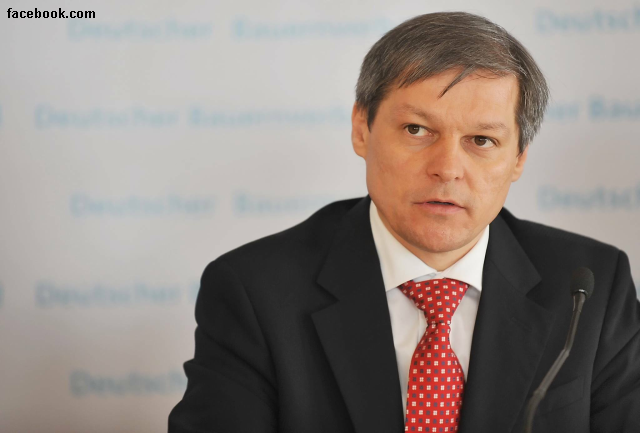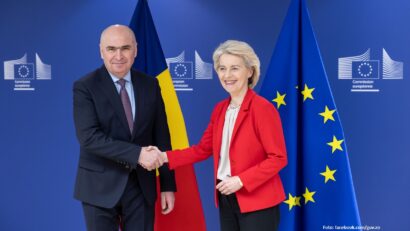Talks over the formation of a new government
Nominated on Tuesday by president Klaus Iohannis to form a new cabinet, Dacian Ciolos is soon to announce the membership of his cabinet.

Bogdan Matei, 13.11.2015, 14:05
The structure of the government will remain the same, but its ministers will not be members of any political parties, as the technocratic prime minister designate Dacian Ciolos prefers to work with professionals like himself, who are unaffiliated politically. However, it’s up to Parliament to approve the new government and its programme, so Dacian Ciolos has had talks with the leaders of all parliamentary parties and groups.
On Thursday, he met the former president of Romania and current leader of the People’s Movement Party, Traian Basescu, the former head of the Social Democratic Party and current leader of the Romanian Social Party Mircea Geoana as well as with Daniel Fenechiu, from the National Democratic Party, formerly the Dan Diaconescu People’s Party. These parties may not have many seats in Parliament, but Ciolos can’t afford to ignore anyone.
Dacian Ciolos: “I have had talks with the parties to present them with my cabinet’s major priorities […] and to see what their sensitivities are, while keeping in mind that we will not be able to include all their suggestions into our government programme. I am currently working on this programme and establishing the names of the new ministers. Naturally, they will be given time, after taking over their posts, to see what they can do. On the other hand, I am aware that we are a technocratic government and that after the investiture vote, the majority will be created in Parliament and we will have to negotiate major bills one at a time.”
Traian Basescu and Mircea Geoana said their MPs would vote in favour of the Ciolos cabinet, while Daniel Fenechiu said his party would also most likely support it. The major parties expressed their positions on Wednesday. Dacian Ciolos can so far count on the votes of the pro-presidential National Liberal Party, the National Union for the Progress of Romania, a former junior partner in the coalition government of outgoing prime minister Victor Ponta, as well as the 18 MPs from the group of ethnic minorities.
The Social Democratic Party, the major party in the former government, its allies the Alliance of Liberals and Democrats for Europe, as well as the Democratic Union of Ethnic Hungarians in Romania in opposition say they will decide whether to support the new cabinet after the publication of the list of new ministers, the programme for government and the ministers’ performance when interviewed in Parliament.
Commentators are convinced the Ciolos government will pass Parliament’s vote and recall that Romania has had a positive experience with politically independent prime ministers before. In the 1990s, the technocratic prime ministers Teodor Stolojan and Mugur Isarescu both led governments that ensured the country’s economic stability and organised fair general elections before handing over to politicians. The same tasks now face the technocratic cabinet of Dacian Ciolos in 2016, a year with both local and parliamentary elections, thus giving a discredited political class time to reinvent itself and regain people’s trust.
(Translated by C. Mateescu / Edited by E. Enache)






























